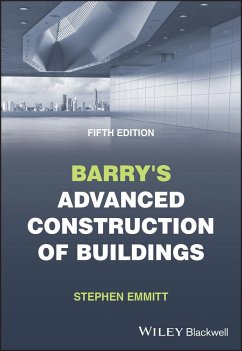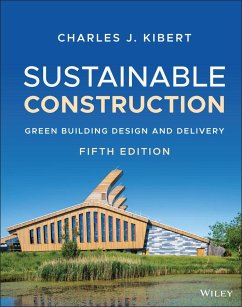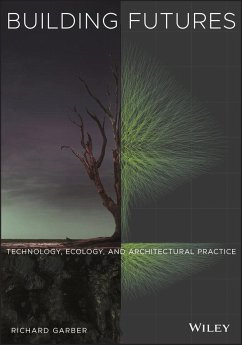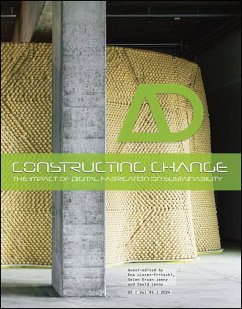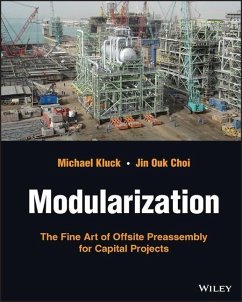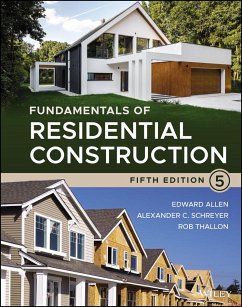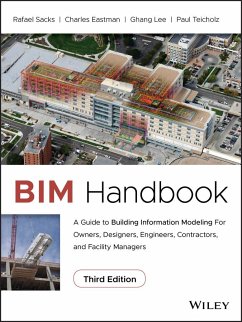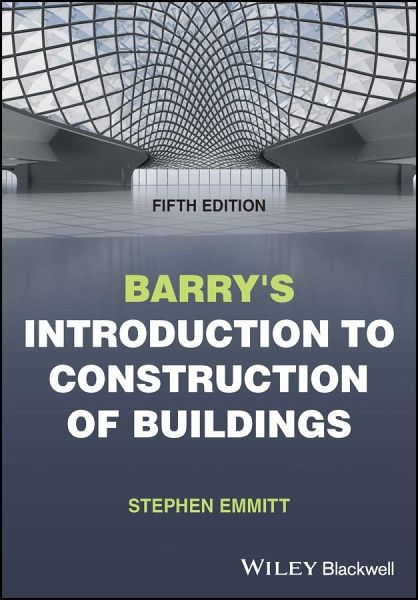
Barry's Introduction to Construction of Buildings
Versandkostenfrei!
Versandfertig in 2-4 Wochen
47,99 €
inkl. MwSt.
Weitere Ausgaben:

PAYBACK Punkte
24 °P sammeln!
BARRY'S INTRODUCTION TO CONSTRUCTION OF BUILDINGSAuthoritative, well established, comprehensive, practical, and highly illustrated guide to construction practiceBarry's Introduction to Construction of Buildings provides the basic material an undergraduate student will need to understand how the majority of low-rise buildings are constructed. The text explains construction technology through key functional and performance requirements for the main elements common to all buildings. The material in the Fifth Edition has been updated to ensure it covers the latest building regulations and current ...
BARRY'S INTRODUCTION TO CONSTRUCTION OF BUILDINGS
Authoritative, well established, comprehensive, practical, and highly illustrated guide to construction practice
Barry's Introduction to Construction of Buildings provides the basic material an undergraduate student will need to understand how the majority of low-rise buildings are constructed. The text explains construction technology through key functional and performance requirements for the main elements common to all buildings. The material in the Fifth Edition has been updated to ensure it covers the latest building regulations and current construction technology, with particular attention paid to the decisions required on what and how to build to achieve a low carbon, resilient built environment. Design, technology, site assembly, and environmental issues are all covered, showing how buildings that are more efficient, with lower embodied carbon, are constructed. New 'in chapter' questions better facilitate self-reflection and learning.
Barry's Introduction to Construction of Buildings contains information on:
_ General principles of construction, regulations and approvals, making choices and sources of information, and responding to climate change
_ Site analysis, setup, security, bedrock and soil types, ground stability, drainage, strip, pad, and raft foundations and scaffolding
_ Functional requirements for floors, including ground-supported concrete floor slabs, timber upper floors, floor finishes, and suspended timber ground floors
_ Pitched roofs and their coverings, sheet metal covering to low-pitched roofs, flat roofs, thermal insulation in flat roofs, parapet walls, and green roofs
Barry's Introduction to Construction of Buildings is an ideal learning resource for undergraduate students and those working towards similar NQF level 5 and 6 qualifications in building and construction. This title is a companion to Barry's Advanced Construction of Buildings.
Authoritative, well established, comprehensive, practical, and highly illustrated guide to construction practice
Barry's Introduction to Construction of Buildings provides the basic material an undergraduate student will need to understand how the majority of low-rise buildings are constructed. The text explains construction technology through key functional and performance requirements for the main elements common to all buildings. The material in the Fifth Edition has been updated to ensure it covers the latest building regulations and current construction technology, with particular attention paid to the decisions required on what and how to build to achieve a low carbon, resilient built environment. Design, technology, site assembly, and environmental issues are all covered, showing how buildings that are more efficient, with lower embodied carbon, are constructed. New 'in chapter' questions better facilitate self-reflection and learning.
Barry's Introduction to Construction of Buildings contains information on:
_ General principles of construction, regulations and approvals, making choices and sources of information, and responding to climate change
_ Site analysis, setup, security, bedrock and soil types, ground stability, drainage, strip, pad, and raft foundations and scaffolding
_ Functional requirements for floors, including ground-supported concrete floor slabs, timber upper floors, floor finishes, and suspended timber ground floors
_ Pitched roofs and their coverings, sheet metal covering to low-pitched roofs, flat roofs, thermal insulation in flat roofs, parapet walls, and green roofs
Barry's Introduction to Construction of Buildings is an ideal learning resource for undergraduate students and those working towards similar NQF level 5 and 6 qualifications in building and construction. This title is a companion to Barry's Advanced Construction of Buildings.




